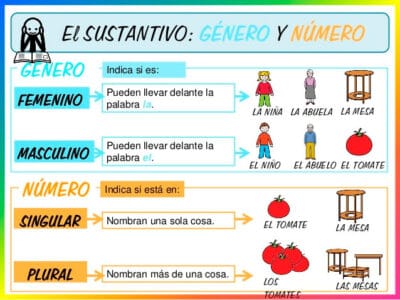The Spanish language thrives on creativity and nuance, particularly when it comes to expressing refusal. While the word “no” serves as the most direct negation, Spanish speakers often employ vivid idiomatic expressions to convey rejection with cultural flair. This article explores 15 common phrases used across the Spanish-speaking world to decline requests or negate propositions without uttering the literal “no.” Each expression carries distinct regional characteristics, historical roots, and situational appropriateness, offering insight into Hispanic communication styles.
Linguistic and Cultural Context of Spanish Negation
The Art of Indirect Refusal
Spanish communication patterns frequently prioritize politeness and social harmony over blunt directness. This cultural preference manifests in elaborate refusal strategies that soften the impact of rejection while maintaining clarity. The phrases examined in this article represent linguistic tools that allow speakers to assert boundaries without violating conversational etiquette. From Andalusia to Argentina, these expressions reflect local humor, historical influences, and shared cultural references.
Grammatical Structure of Negation
Unlike English, Spanish permits multiple negations within a single sentence for emphasis, a feature prominently displayed in phrases like No ni na. This syntactic flexibility enables speakers to intensify refusal through layered negative particles. The expressions analyzed below demonstrate how colloquial Spanish bends grammatical rules to create memorable refusals that resonate within specific communities.
Regional Expressions of Refusal
1. No ni na
Ejemplo:
— ¿De verdad que no vienes a la fiesta?
— ¡No ni na! Ni se me ocurriría perderme tu cumpleaños, no te preocupes que iré.
— Are you really not coming to the party?
— Of course I’m coming! (“No ni na” literally means “No, not nothing”) I would never miss your birthday, don’t worry, I’ll be there.
2. Ni de broma
Ejemplo:
— ¿Te gusta pasear bajo la lluvia?
— ¡Ni de broma, te puedes resfriar!
— Do you like walking in the rain?
— Not even as a joke, you could catch a cold!
3. Ni por asomo
Ejemplo:
— ¿Ese chico se parece mucho a tu novio?
— ¡Ni por asomo! No se parecen en nada, ¿cómo se te ocurre?
— Does that guy look a lot like your boyfriend?
— Not in the slightest! They don’t look alike at all, how could you think that?
4. Ni lo sueñes
Ejemplo:
— ¿Quieres que te ayude a comerte todo el postre?
— ¡Ni lo sueñes, este postre es mío!
— Do you want me to help you eat all the dessert?
— Don’t even dream it, this dessert is mine!
5. Ni se te ocurra
Ejemplo:
— ¿Puedo coger tu camiseta nueva?
— ¡Ni se te ocurra! Es mía y además es nueva. Ni siquiera me la he puesto todavía.
— Can I borrow your new T-shirt?
— Don’t even think about it! It’s mine and brand new. I haven’t even worn it yet.
Colloquial Intensity Markers
6. Ni a tiros
Ejemplo:
— ¿Has conseguido entradas para el concierto del viernes?
— ¡Ni a tiros! Ha sido imposible incluso entrar a la página.
— Did you manage to get tickets for Friday’s concert?
— No way! (Literally: “Not even with gunshots”) It was impossible even to access the website.
7. Ni en un millón de años
Ejemplo:
— ¿De verdad que no te quieres venir a nadar con tiburones?
— ¡Ni en un millón de años! Les tengo muchísimo miedo.
— Do you really not want to go swimming with sharks?
— Not in a million years! I’m terrified of them.
8. Ni hablar
Ejemplo:
— ¿Te quieres teñir conmigo de rosa?
— ¡Ni hablar! Muchísimas gracias, pero no estoy tan loca.
— Do you want to dye your hair pink with me?
— No way! Thanks a lot, but I’m not that crazy.
Affectionate Refusals
9. De eso nada, monada
Ejemplo:
— Mamá, ¿me puedes dejar 10 euros para la feria?
— ¡De eso nada, monada! Tú tienes tu propio dinero.
— Mom, can you give me 10 euros for the fair?
— No way, darling! You have your own money.
10. De eso nada
Ejemplo:
— ¿Estás feliz con tu nuevo móvil?
— ¡De eso nada! Si todavía no me ha llegado.
— Are you happy with your new phone?
— Absolutely not! It hasn’t even arrived yet.
Absolute Denials
11. Jamás
Ejemplo:
— Sé que algún día volverás con tu exnovia.
— ¡Jamás! ¿Cómo se te ocurre?
— I know one day you’ll get back with your ex-girlfriend.
— Never! How could you even think that?
12. ¡Jamás de los jamases!
Ejemplo:
— ¿De verdad que no te vas a montar en esa montaña rusa?
— ¡Jamás de los jamases! Le tengo muchísimo miedo a las alturas.
— Are you really not going to ride that roller coaster?
— Never ever! (Literally: “Never of the nevers”) I’m really scared of heights.
Metaphorical Refusals
13. Sigue soñando
Ejemplo:
— ¿Me vas a dejar tu cámara nueva para grabar mi videoclip?
— ¡Sigue soñando! Si has roto la tuya, ¿cómo te voy a dejar la mía?
— Are you going to lend me your new camera to record my video clip?
— Keep dreaming! You broke yours, how could I lend you mine?
14. Cuando las ranas críen pelo
Ejemplo:
— ¿Te gustaría tirarte en paracaídas?
— ¡Sí, cuando las ranas críen pelo!
— Would you like to go skydiving?
— Sure, when frogs grow hair!
15. Cuando vuelva de la India
Ejemplo:
— Podemos quedar este fin de semana si quieres.
— ¡Ay, lo siento! Quedamos cuando vuelva de la India, ¿vale?
— We can meet this weekend if you want.
— Oh, I’m sorry! Let’s meet when I return from India, okay?
The Social Dynamics of Refusal
These 15 expressions reveal Spanish as a language that values creative negation as both social lubricant and artistic expression. From triple negatives to biological impossibilities, each phrase provides speakers with tools to navigate complex social interactions while preserving relationships. At Inhispania’s Spanish courses in Madrid, you’ll not only learn grammar and vocabulary, but also idiomatic expressions like these that make you sound like a true native.



